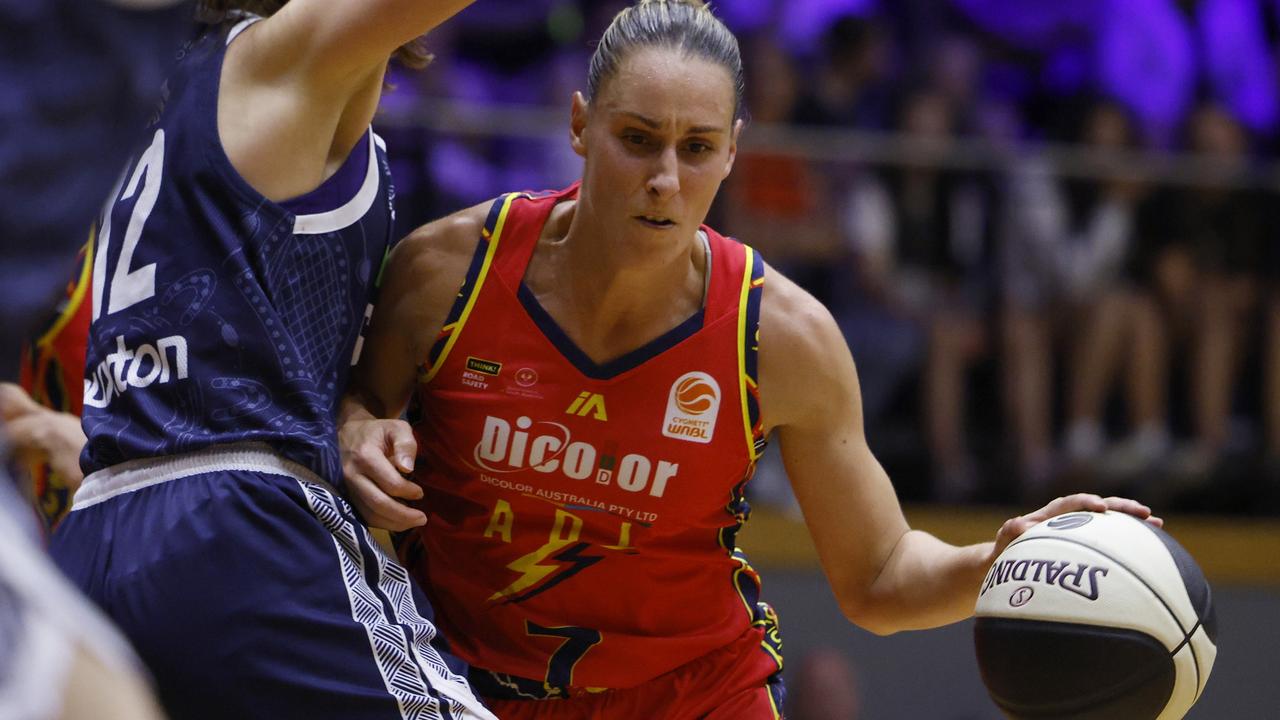Insight: Netball Australia's pay war with players took its toll, and its lowest point hit hard
Australia’s stars hit rock bottom as their pay war with Netball Australia turned ugly. But it was all for a higher purpose, current star Maddy Turner explains in her exclusive column for Insight.
CODE Insight
Don't miss out on the headlines from CODE Insight. Followed categories will be added to My News.
We have all heard stories of netball stars in years’ past playing for not much more than a pair of shoes.
Our Swifts’ coach, Briony Akle, for one, never lets us forget how her generation of players had to keep working while they were playing to fund their netball careers.
I certainly feel the players who came before us did their duty in terms of leaving the sport in a better place for the current group of national and international netballers.
This was our moment to do the same for the next generation.
As much as the Australian Netball Players Association’s fight for a fairer pay deal has been about the here and the now, this battle was more about the future of the sport.
We’re not going to be the ones who benefit from it - a lot of us at the forefront of the fight are getting older and we know sporting careers have a shelf life.
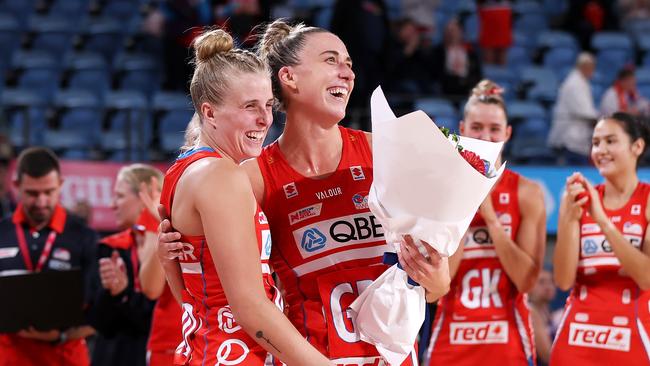
We were fighting for the 10-year-olds, who are just starting out in the game and who will be professional athletes in a decade’s time.
We were fighting for their future in the sport.
Like those before us, we also want to leave netball in a better place.
There has been no shortage of headlines about our fight with Netball Australia for a fairer pay deal and I can honestly say the last nine weeks have been some of the toughest I have ever faced in my time in the sport.
As one of the player representatives on the ANPA board, having to manage expectations for the playing group has been a challenge.
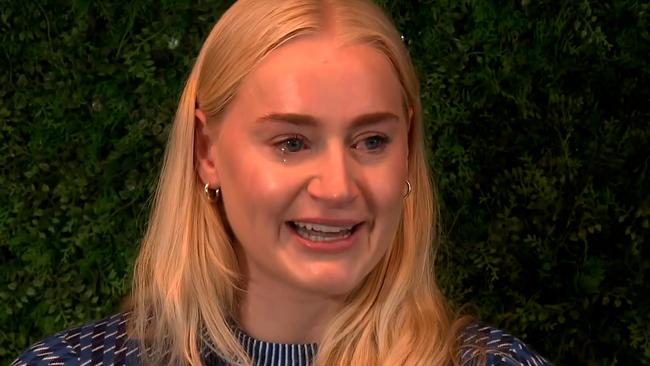
With every meeting that passed without resolution, I constantly felt I was letting them down.
There were so many times during the negotiations where I would get my hopes up about a deal getting done only to leave meetings deflated and feeling helpless as well.
“I’m sorry guys. The deal has not been done”, I would say to my teammates and your heart just sinks for everyone because you know the impact it was having.
In netball, we don’t have the massive savings like the players in footy codes have to lean on.
We had players forced to take on extra jobs or having to reach out to the bank of mum and dad just to get by.
We had international players who weren’t able to earn extra money and players trying to get pre-approval for a house loan trying to explain to the bank, ‘I am getting a contract, but I can’t show it to you at the moment because we’re in the middle of an industrial dispute’.
Then there were the players who had made the move interstate totally left in limbo.
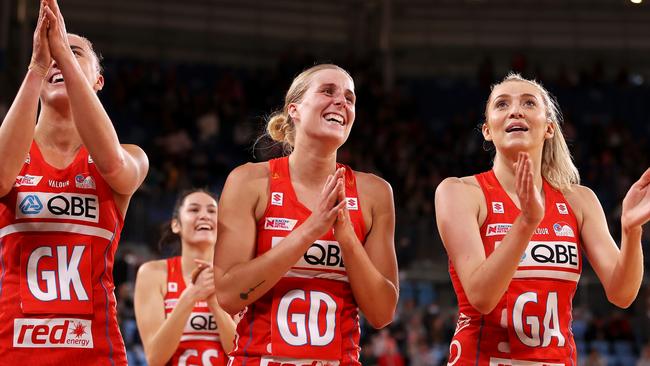
I live with three other players and two of the younger girls had to turn to their parents to help them cover the rent; one had to get an extra job and another had to take on more coaching to help pay the bills.
When the electricity bill came in we all looked at each other and said ‘Who is going to pay it?’. We were all in the same boat together.
It was frustrating for so many players as you want to put all your energy into what you need to do in terms of making yourself a better player, but many were spending all their energy on getting other jobs or doing extra coaching just to get some income in.
The lowest point for me was a meeting we had with the sport’s chiefs on the Saturday before the Netball Australia awards. I was on the Zoom hook-up and Steph Wood was on there crying about what she was going through and kind of just got shut down.
That, for me, was a real low point.
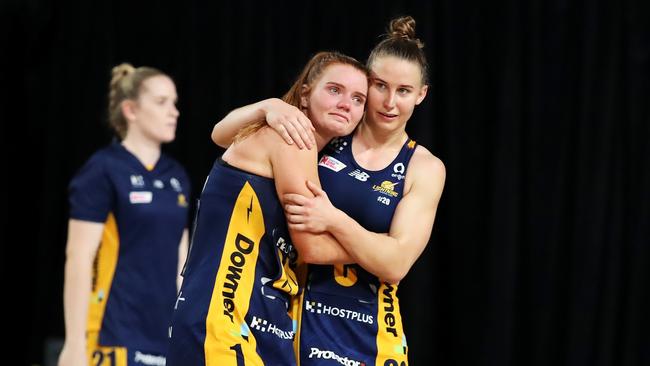
I was thinking ‘What is going to happen here?’ I just couldn’t see a way out or a light at the end of the tunnel.
Then we had another call with Netball Australia the following Friday and I thought, ‘If this is another three-and-a-half hour Zoom meeting and it goes nowhere I am going to be a very flat person after this’.
But after four hours we were finally able to reach an agreement, which was a huge relief.
We felt very strongly about the need for a revenue share model.
For us, it really drives that partnership idea; building a sport together, working with sponsors more and having better relationships all through the game.
We just want to reap the benefits of being in the sport together.
The players are very grateful to get the revenue share model over the line because we think it will drive the sport further.
We don’t want netball to be left behind in the dark.
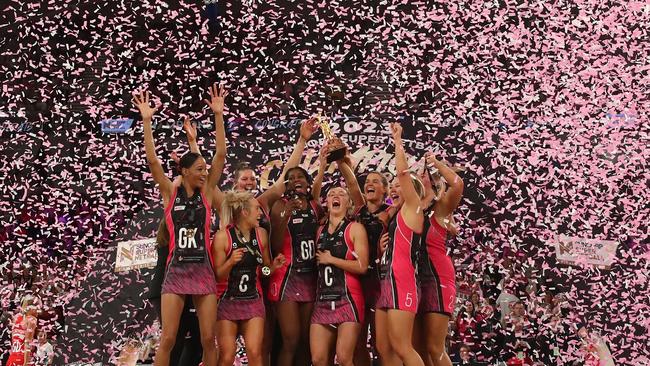
For so many years, netball has been at the forefront of women’s sport and we want to keep carving that path.
There is a lot more competition now, than there was when I was growing up, for the attention of young girls - so we need to make sure we are competitive in that market.
We want to be the sport that little kids look at and say ‘I want to play netball and I want to do it professionally’.
There is no doubt throughout this whole process it has put a strain on our relationship with Netball Australia. We were losing confidence in the sport’s hierarchy.
Our No.1 priority was getting a deal done for players and wherever that lands for the people higher up, I guess they will have to deal with whatever comes their way.
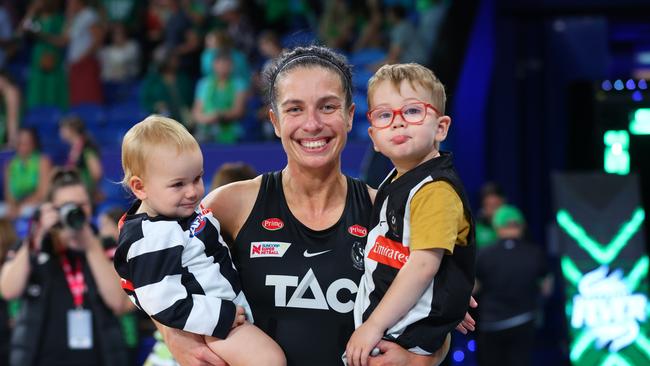
For us, it was really important that our voices were heard. I hope that if these leaders do stay, then they will listen to players in the future and have learned what we can do and how powerful we are.
We didn’t want to put the sport through the ringer in terms of going to the media because we know that’s not great for the sport.
But we also felt it was necessary for us to get our point across and to be heard.
The support we have received throughout this process from other player associations and ex-players has been unbelievable.
But our fight would not have been possible without the support of ANPA chief executive Kath Harby-Williams and advisor Ian Prendergast, who went above and beyond for the players.
Despite the struggles it has presented, to have all the players united on the same front has felt pretty special.
When you have got all of the playing group prepared to fight for something so passionately, that is pretty rare.
But this was definitely a battle worth fighting for - and we hope the next generation agrees.




